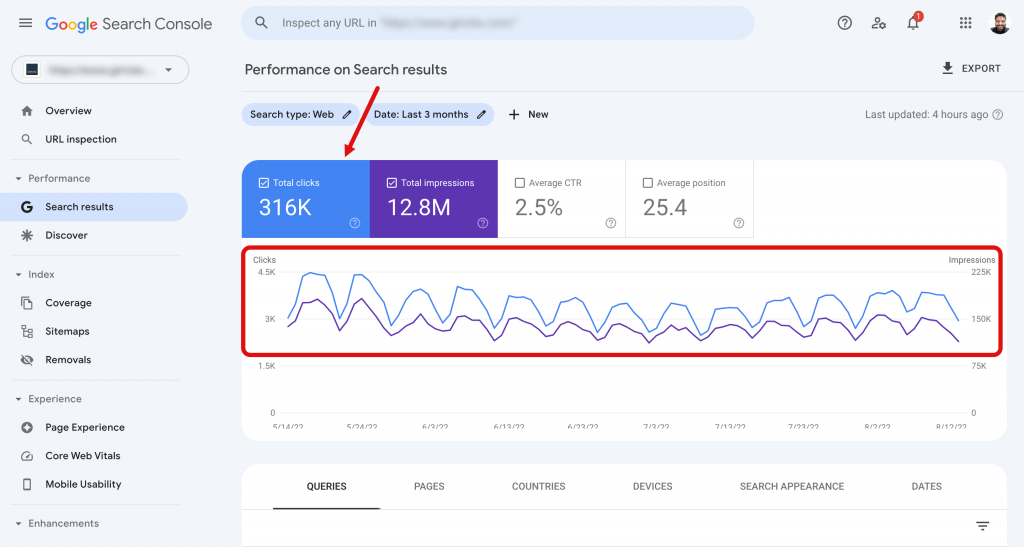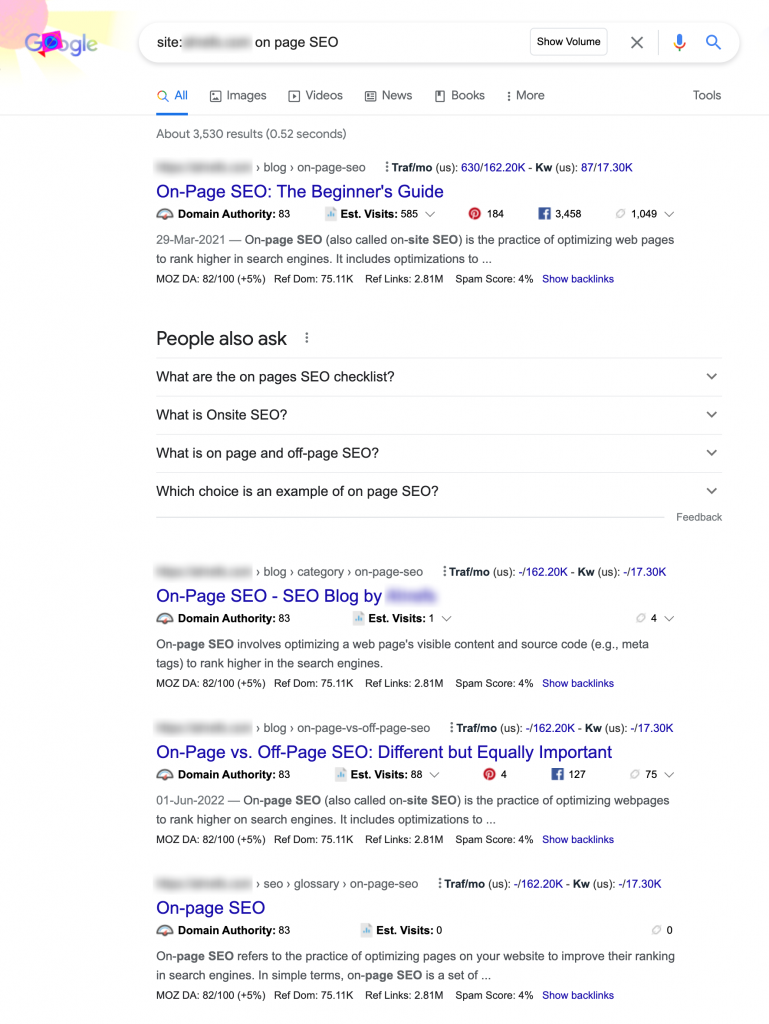In today’s letter, I want to share 3 tips about what’s famously known as keyword cannibalization. In simpler words, multiple pages rank for the same/similar keywords.
Multiple pages targeting the same keywords, not only confuses Google, but the UX also takes a direct hit. Which is even more worrisome than confused Google. When you consolidate pages that target the same/similar page, you invite more organic traffic. Because you’ve eliminated you hiccups I mentioned above.
Knowing how to consolidate pages will help you understand the search intent at the quantum level. Rewards of which are more organic traffic, highly targeted users revisiting & fewer resources spent on SEO.
Most founders don’t realize this. Creating more pages is not the solution. It’s not only cost-inefficient, but it’s also time-consuming. On the other hand, consolidating similar pages is quick, effective & evergreen. Creating more content won’t help with SEO, there are billions of pages already.
The best way to do SEO wrongly is to stuff keywords & create more pages with stuffed keywords. Create tightly packed, valuable pages that end users are searching for. In this edition, we will see how to consolidate pages that will bring more organic traffic at a lesser cost.
Is it possible to avoid multiple pages targeting the same keyword?
Long answer, short. Absolutely. Before I talk about how let me share some reasons why there are multiple pages in the first place. This will give you the idea to check if you’re making the same mistake.
- The site is of an era where the algorithm would rank solely based on the number of times keywords are used on a page. Resulting in keyword stuffing & extremely poor quality of SERPs. Basically, the sole purpose of the site was to create content for search engines, there was no UX. The Google algorithm evolved & such pages lost traffic like never before. And recovering from it became impossible since doing ‘the right thing’ was never their cup of tea.
- Unintentionally, one may end up creating content for variations of the same keywords. Eventually, ending up falling prey to creating “topic clusters”. Which is a group of pages semantically inter-connected. This is unavoidable & a problem only if these pages are pulling down your traffic.
- Creating content targeting similar keywords for various sub-domains. Unaware of the technicalities is also an invitation to keyword cannibalization. Google made an official announcement that only two links from the same root domain can be present on SERP for the search term. That is, even pages from subdomain.example.com & example.com will be considered as from the same site, i.e, one root domain. Check out this discussion on Twitter for a better understanding.
Don’t delete your pages yet! We have little something to understand first. Now that we’ve understood the problem, we shall address the solution now. Even if you have such pages or have no idea if you have such pages, sit back tight. We’re about to talk about how to find such pages & fix them (only if required)
Step 1: How to recognize duplicate content on your site?
Since I introduced you to this problem, I’m sure something is running in your mind. “Maybe my site has some pages, that’s becoming a bottleneck”, “Maybe I’ve created way too much content, that’s cannibalizing my organic traffic”
But should you even worry about such pages? Yes & No. Use a free tool for this. Using this is boring but you’d seldom fail. The tool is your brain.
Simply, identifying the pages that are topically similar on your site will give you an insight into the problem. Ask yourself, “Are these pages solving a highly specific problem?”. “Can these pages be merged?, or Do these have to be standalone” If you’re doubtful, the answer is always no.
List such pages & see if you logically merge them with semantically pillar pages. For example, a page “Twitter profile optimization tips” can be merged with a page targeting “Twitter bio ideas”. Both are targeting similar search intent & have little to no need to be standalone pages.
Step 2: Checkout analytics for signals
Doing it manually will take a lot of time, especially if you have a ton of pages. Go to the Google search console & see how new pages are performing. Most of the time, when you publish new pages discussing the same/similar topic, the traffic on the old posts takes a nosedive. Always think in terms of topics while consolidating pages, if you have to. If at all you find such pages, don’t delete those immediately. See if you can repurpose it as an email, or social post, or use portions of it in an existing post. This will update the post, something Google loves. Google can sniff fresh content from miles away.
See what search traffic looks like with little to no keyword-cannibalized pages. One of the client’s sites enjoys almost a monopoly of organic traffic in a highly specific niche. I keep a close look at the keywords that the pages are ranking for, and ensure one page to many keywords and not otherwise.

Pro tip: Google “site:domainname.com” <<keyword>> to see all the pages targeting this keyword. These are potential candidates for consolidation.

Step 3: Consolidate without mercy
Don’t feel romantic about your pages, those are meaningless if they don’t bring traffic to your site. When you find two pages that talk about the same topic, merge those without any mercy.
The best way to find such pages is to ‘not’ look for them. Look will be lost in the rabbit hole if you hunt for such pages. Simply keep an eye on the content that’s being created. Do not allow any page to see daylight if it’s not talking about new topics.
Another way I ensure I don’t end up creating cannibalized pages is by updating the posts. This has been a lifesaver for me. Instead of breaking my head on creating new content, I update the existing ones. Here’s a flow I follow (in simple words):
- Never do keyword research before writing a post. Look for topics & write about those. (Most people will fail right at this step)
- Publish & forget it. Obviously, pass through all the SOPs you might have for content marketing
- Let it get indexed. Don’t worry about the rank, we can always fix that.
- Once you see the page getting indexed, see the keywords the page is getting impressions for. Optimize for those keywords, not sprinkle the keywords, optimize. Rinse & repeat these steps.
That’s it. That is all you have to do to rank for any term you wish for. Obviously, this won’t work for everyone & every page that’s created. But even if a few pages rank #1, you’d have enough business at hand.
TL;DR
If you’ve been wanting to grow organic traffic to your site, chances are you already have the traffic. Look for pages you can consolidate with these easy steps:
- Identify pages that can be consolidated. These can be found by simply Googling “site:domainname.com <<keyword>>”.
- Use tools such as GSC to avoid creating cannibalized pages altogether.
- If at all you find pages that can be consolidated, merge without any mercy. Those pages are anchoring your organic traffic to your site.
That’s it for this issue. I’ll see you with a new topic to talk about next Saturday.
If you’re looking forward to winning online, here’s how I can help:
- Sit with you 1-on-1 & create a content marketing strategy for your startup. Hire me for paid consulting.
- Write blogs, social posts, and emails for you. Get in touch here with queries (Please mention you found this email in the newsletter to get noticed quickly)

